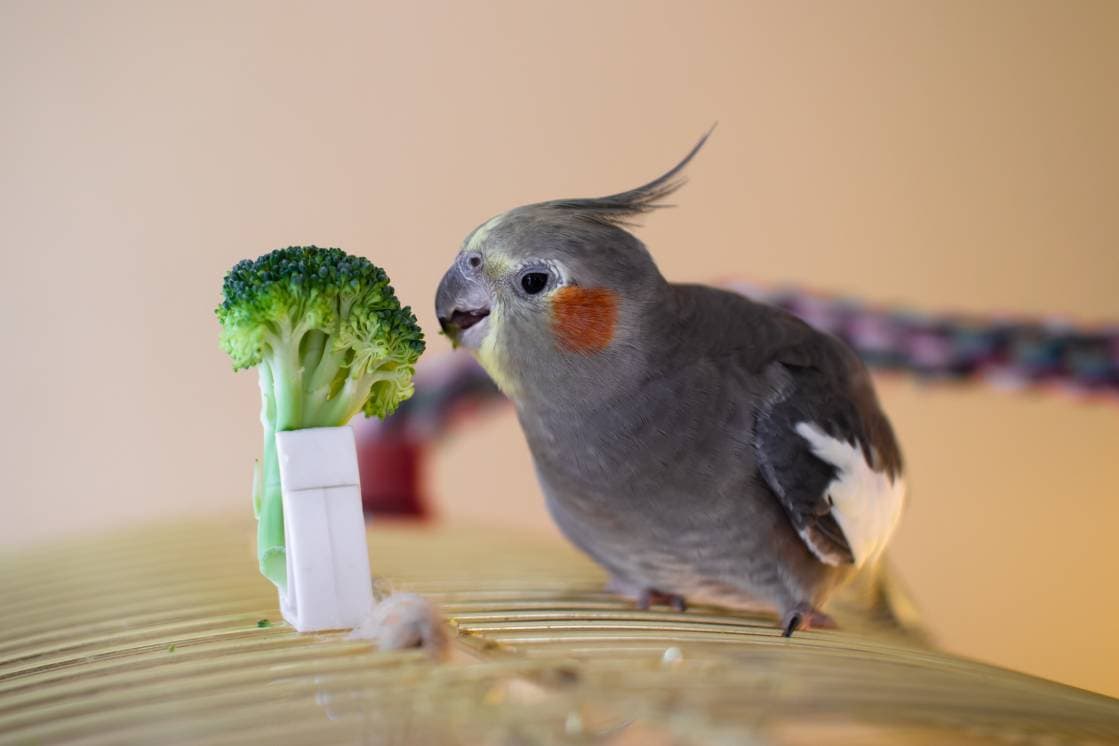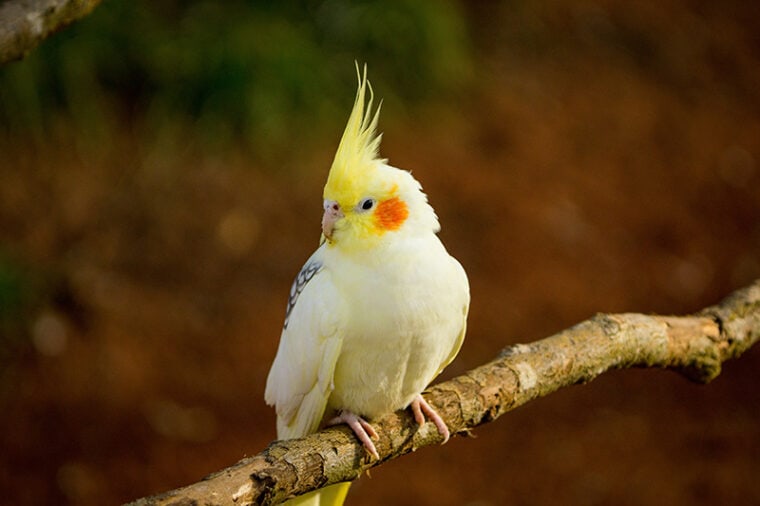
If you are a bird owner (or maybe want to own a feathered friend in the future), you have probably heard of a cockatiel. Cockatiels are members of the Cockatoo family, native to Australia. They are one of the most common pet birds, found extensively all over the world in many different colors. However, like all pets, they are susceptible to certain diseases.
This article goes over some of the common diseases that cockatiel owners should be mindful of to ensure your bird remains healthy and happy.
The 10 Common Diseases of Cockatiels
1. Chlamydophilosis
This disease is also referred to as “Parrot Fever”. This disease can affect any bird and is one of the common ailments of pet cockatiels. It is caused by Chlamydophila psittaci. This organism lives inside the cells of your pet bird, making it difficult to treat.
There are no specific signs of this disease. Birds that are affected may sometimes appear completely normal (also known as asymptomatic). Other signs of a bird with this disease may include the following:
This disease can spread from birds to humans, a concept known as zoonosis. Therefore, vets will encourage owners to perform blood tests on their pet birds to ensure they are free of this disease. Birds that are showing signs of illness may also have their feces examined and tested.
2. Fungal Infections
Cockatiels and other small parrots are prone to fungal infection by Macrorhabdus ornithogaster. This is common in birds that are immunocompromised, kept in unhygienic conditions, being hand fed, or under medication. Signs of this disease include the following:
Your veterinarian can diagnose this fungal infection by examining your bird’s feces under a microscope. In addition, they may also perform diagnostic tests, such as an X-ray or blood tests. The mortality rate of this infection is, unfortunately, relatively high. However, prompt treatment may save your bird and allow a full recovery.
3. Aspiration Pneumonia
This disease is commonly seen in hand-fed parrots, including cockatiels. If you overfeed your baby cockatiel a large amount of formula, they may not be able to handle the intake, and some of the food may enter their airways instead of their crop. The signs of this infection are commonly seen when birds are being weaned and have an increased appetite. Signs of this disease include:
Depending on the age of your bird, your vet may opt to run some tests. However, most vets can easily diagnose this disease by asking questions relevant to your bird’s hatch date, age and how you feed them. While some birds can recover from mild infections with treatment, those with moderate to severe infections, unfortunately, don’t mount an effective response to treatment and medication.
4. Cataracts
Cataracts are cloudy areas in the lens of your pet birds. This condition is common in older cockatiels and often happens gradually. Most birds adapt well to the gradual loss of their sight. Some signs that your bird has cataracts include:
As the presence of cataracts can predispose your bird’s eye to other diseases, it is recommended to see a veterinarian eye specialist as part of your bird’s routine check-ups when they’re older.
5. Gout
As cockatiels age, they’re prone to another condition known as gout. Gout is defined as the abnormal deposition of uric acid in your bird’s body. Uric acid is naturally formed as the end product of protein breakdown in pet birds. Under normal circumstances, it is secreted out of the body in your bird’s feces. This problem often sets in when birds have underlying kidney issues, which prevent proper secretion of uric acid.
Gout causes pain in your bird’s joints (particularly their feet). The signs of gout include the following:
Other forms of this condition may affect your bird’s internal organs. Unfortunately, when the internal organs are affected, you may not see any signs, and your bird may unexpectedly pass away.
This condition is extremely painful and requires constant medicine prescribed by your vet. If your bird does not improve from medication, your vet may discuss humane euthanasia with you. Though a healthy, well-balanced diet may reduce incidences of gout, the disease complex of gout in birds isn’t completely understood, and this disease may be caused by a multitude of factors.
6. Obesity
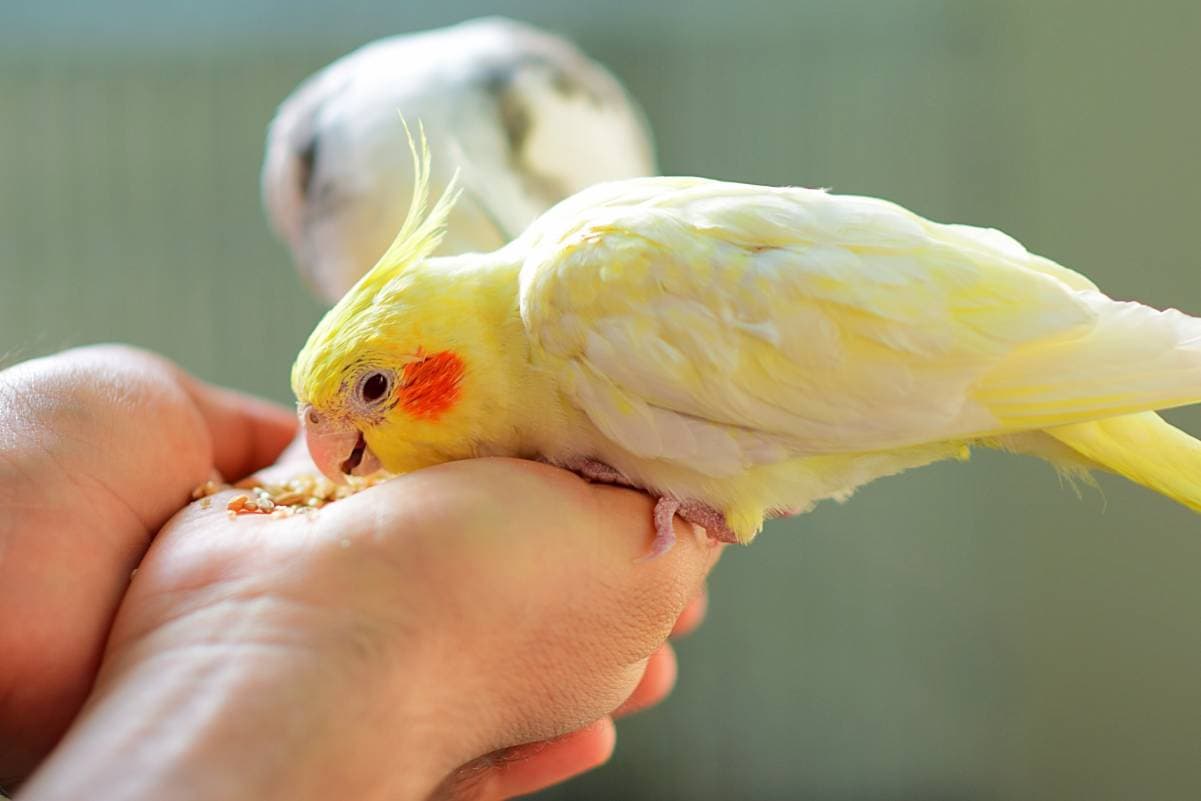
In birds, obesity is described as your pet bird being 20% over their ideal weight. It is the most common nutritional disease of pet cockatiels. It is seen more commonly in birds fed diets high in fats. Such diets include seeds, nuts, and table scraps. A sedentary lifestyle and boredom leading to overfeeding may also perpetuate obesity in your cockatiel. Spotting obesity may be difficult, as your bird’s feathers may mask a bulky body. However, you may notice signs such as
Treatment and management of obesity are long-term and involve lifestyle changes for your bird and a massive commitment from you as well. It usually involves a dietary change, portion control, exercise, and enrichment. Your vet will be able to set up such a plan for your bird.
7. Egg Binding
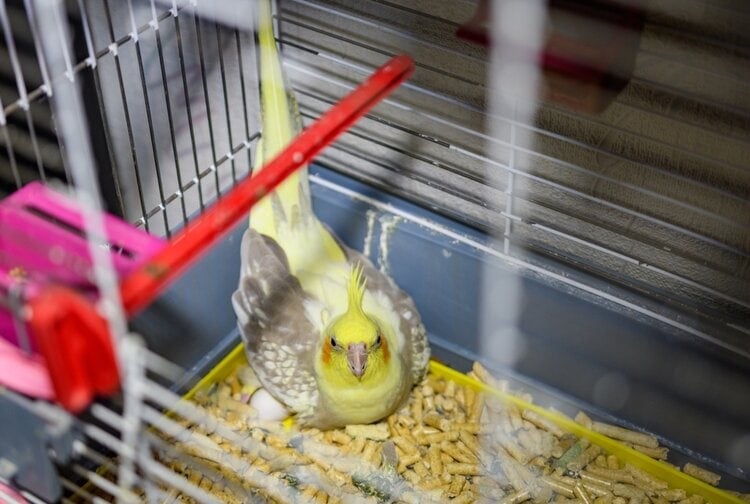
This disease is something you should be mindful of if you have a female cockatiel. It can be caused by inadequate calcium in their diet, vitamin A deficiency, diseases of the reproductive tract, being first-time layers, obesity, or your bird’s genetics. Signs of egg binding include:
This disease requires prompt veterinary care. Your vet will ascertain your bird’s condition, stabilize her condition, and then help her pass the stuck egg. Surgery may be needed in some cases. As is the case with many ailments, your vet will discuss medication or preventive measures with you depending on your bird’s clinical signs and condition.
8. Lead and Zinc Toxicosis
Lead and zinc are two metals commonly found in many households. Pet cockatiels that are tame and roam around your house may ingest these metals as they explore and play. Common household metals that may have these metals include galvanized toys, chains, mesh, bells, pennies, costume jewelry, curtain weights, blinds, and unethically manufactured bird toys.
The clinical signs of lead and zinc toxicosis are similar. The signs include the following:
These signs may start as minor and gradually increase in the extremities as your bird increases the metal toxin over time. At other times, sudden ingestion of a high amount of metal toxins may result in extreme signs showing up rapidly.
9. Giardiasis
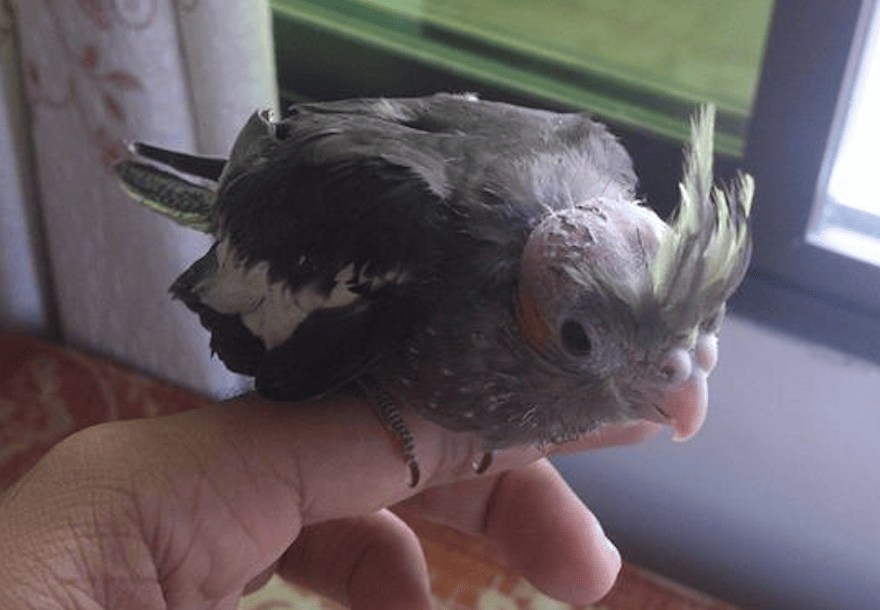
Giardia are gut parasites. In the parrot world, they are most commonly observed in cockatiels. Some birds with these parasites may appear completely normal. However, others may begin pulling feathers out from their inner wings and inner thighs for reasons that aren’t completely understood yet. Other signs that your bird might have giardiasis include the following:
Your vet can diagnose these parasites by running tests on your bird’s feces and setting up a treatment plan appropriate for your bird, depending on their clinical signs.
10. Trauma
Finally, though not a disease in a strict sense, cockatiels are vulnerable to trauma in the form of injury. This is particularly true for birds that are tame and allowed to fly around the house for extended periods. The most common incidences of trauma are the following:
In many cases, the outcome for birds that experience traumas is poor. Therefore, it is important to bird proof your house before allowing your parrot outside their cage for exercise and interaction with you.
What Are the Treatments for These Diseases?
Treatment for all the aforementioned diseases will come from proper diagnosis from your vet and may vary. For example, treatment for chlamydophilosis lasts at least 45 days with the drug doxycycline, which your veterinarian will prescribe. Your veterinarian may prescribe additional supplements and medication for these ailments as deemed necessary. As for a fungal infection, treatment typically involves antifungal drugs alongside other supportive treatments.
For some serious situations, like aspiration pneumonia and toxicoses, treatment for this disease depends on the severity of the signs your cockatiel shows, along with supportive therapy (such as oxygen, warmth, fluid therapy, and nebulization). Serious cases of gout may result in the bird being euthanized because gout is very painful.
With cases of obesity, your vet may recommend getting them to move around more while in the cage by providing them with toys or a change in diet.
Conclusion
In this article, we’ve gone over some common diseases pet cockatiel owners should be wary of. Routine veterinary check-ups, proper cage setups, species-appropriate diet, and exercise plans, bird-proofing your home, and being proactive about learning more about these diseases are recommended for pet bird owners.
Treatment attempts for these diseases at home are strongly discouraged; in many cases, trying to self-diagnose and self-medicate your bird might worsen your bird’s condition. If you suspect something is wrong with your cockatiel, visit your veterinarian and have them examine your feathered companion.
Featured Image Credit: Marlon Roth, Shutterstock






